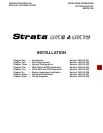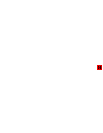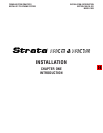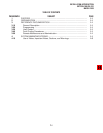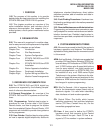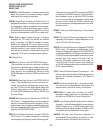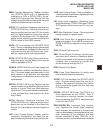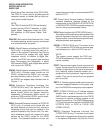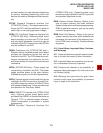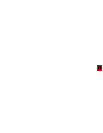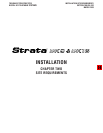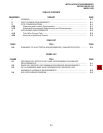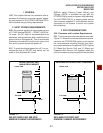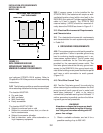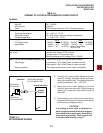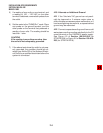INSTALLATION-INTRODUCTION
SECTION 100-816-201
MARCH 1993
1-5
provide interface for eight standard telephones
or optional hardware peripherals (voice mail
devices, fax machine, Background Music source,
etc).
PSTU2: Standard Telephone Interface Unit
(STRATA DK16 only)—Provides the same func-
tion as the PSTU with the addition of a switch to
select high or low ringing generator voltage.
QCDU: CO Line/Digital Telephone Interface Unit
(STRATA DK8 only)—Optional printed circuit
board providing one loop start CO line circuit
and two digital telephone circuits that can be
installed in the KSU. A maximum of two QCDUs
may be installed in the DK8.
QCNU: Conference Unit (STRATA DK8 only)—
Standard factory-installed printed circuit board
provides two conference circuits that can be
installed in the KSU. The PCB allows two simul-
taneous conferences: four parties for the first,
and three parties for the second simultaneous
conference.
QPSU: (STRATA DK8 only)—Power supply that
comes factory-installed in the KSU. This power
supply provides power to the entire system.
Available as a spare unit for field replacements.
QRCU: Optional printed circuit board that can be
installed in the KSU to provide a 3-circuit Dual-
tone Multi-frequency receiver for DISA CO lines
and standard telephones. It also provides busy
tone detection for Auto Busy Redial.
QSMU: SMDR/TTY Interface Unit (STRATA DK8
only)—Optional printed circuit board which
provides either SMDR, or Remote Maintenance
Terminal (TTY) or external modem interface.
QSMU configuration is selectable in system
programming.
QSTU: Standard Telephone Interface Unit
(STRATA DK8 only)—Optional printed circuit
board that can be installed in the KSU to provide
two standard telephone circuits.
RAM: Random Access Memory—Refers to the
type of system memory that holds individual
system configuration and feature programming.
RAM is read/write memory, and can be easily
revised in programming.
ROM: Read Only Memory—Refers to the type of
system memory that holds static software that
comprises the mechanics of the features’ func-
tions. ROM is only revised by Toshiba software
engineers.
4.10 Use of Notes, Important Notes, Cautions,
and Warnings
4.11 Notes call attention to specific items to elabo-
rate, or to refer the reader to other information.
4.12 Important Notes are used when the informa-
tion is considered to be very important.
4.13 Cautions call attention to the possibility of
equipment being damaged if the instructions are
not followed closely.
4.14 Warnings are used when the given tasks
involved could cause the possibility of personal
injury or death to the technician.



